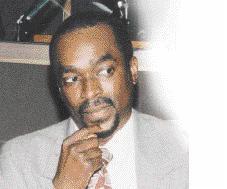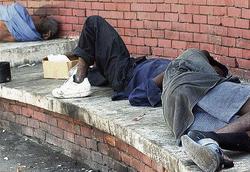
Wendel Abel "Give me your tired, your poor,
Your huddled masses yearning to breathe free,
The wretched refuse of your teeming shore.
Send these, the homeless, tempest-tossed to me.
I lift my lamp beside the golden door."
- Inscription onthe Statue of Liberty
In 1996, the United States (U.S.) Government introduced tough, new immigration laws, the 1996 Anti-Terrorist Act. Under this act, legal or illegal aliens who are convicted of either a felony or a misdemeanour of any nature, whether in the present or in the past and, even if they served their sentence and returned to living productive lives, by law should be deported. The implementation of these immigration laws resulted in over 30,000 persons deported to Jamaica.
The toxic triad
Many persons who have been deported have experienced the toxic triad of family disruption associated with migration of one or both parents, multiple shifting as they are left behind in the care of other family members or friends and abuse of various kinds. These experiences impact negatively on the socialisation of children and their adjustment in later life in the countries to which they migrate.
High levels of criminality
A number of persons deported have been charged for drug possession, use, trafficking or other felony such as robbery and even murder. A small percentage of deportees are mentally ill and may have committed an offence while they were ill.
Problems with re-entry
On being sent back, many deportees find that they have very little family support here in Jamaica, they have few friends as their friends would have moved on or migrated. A major challenge they face is that of adjusting to the Jamaican society. They are stigmatised and sometimes ostracised and find it extremely difficult to find a job or meaningful employment for a number of reasons. The job market is very competitive as the unemployment rate in Jamaica is high.
Deportees are easily recognised by their accents or as is the case of many of the males, their body built. Many who did not complete secondary school in Jamaica and who do not have CXC subjects, find it difficult to get job they may be educated. In addition, many are not prepared to work for the relatively low salaries since they are accustomed a certain lifestyle.
No home to return to

Many deportees end up homeless and on the streets. - Norman Grindley/Deputy Chief Photographer
As a displaced group, they have become part of a marginal population in their native country with no family, yearning to return to the metropolis and to their families and children they have left. The forced relocation has resulted in lives plagued by deprivations, uncertainties, and homelessness and mental health challenges.
Deportees present with many social and psychological challenges. They account for 20 per cent of persons entering the substance abuse treatment system, 10 per cent of persons in our mental health system and 10 per cent of adult males on the streets of Jamaica.
Their connections to Jamaica is jus solis birth on its territory but they have no connections, without an anchor, without horizon, for many homeless and stateless.
Attention should be paid to the mental health and the general health, social welfare, employment and shelter needs of this group. Proper representation should be made to the returning country to play a role in the resettlement of these individuals. Organisations such as the Salvation Army, Land of My Birth and Community Group Homes should be commended for the work they have been doing to assist with the re-entry of these individuals.
Every nation has the right to deport and exclude but, whatever the misdeeds, such powers should be exercised morally, ethically and humanely. Many deportees find themselves, homeless, hopeless, helpless and the hapless. "Migration is a one-way trip, there is no 'home' to go back to." (Stuart Hall).
Dr. Wendel Abel is a consultant psychiatrist and seniorlecturer, University of theWest Indies; email: yourhealth@gleanerjm.com.
